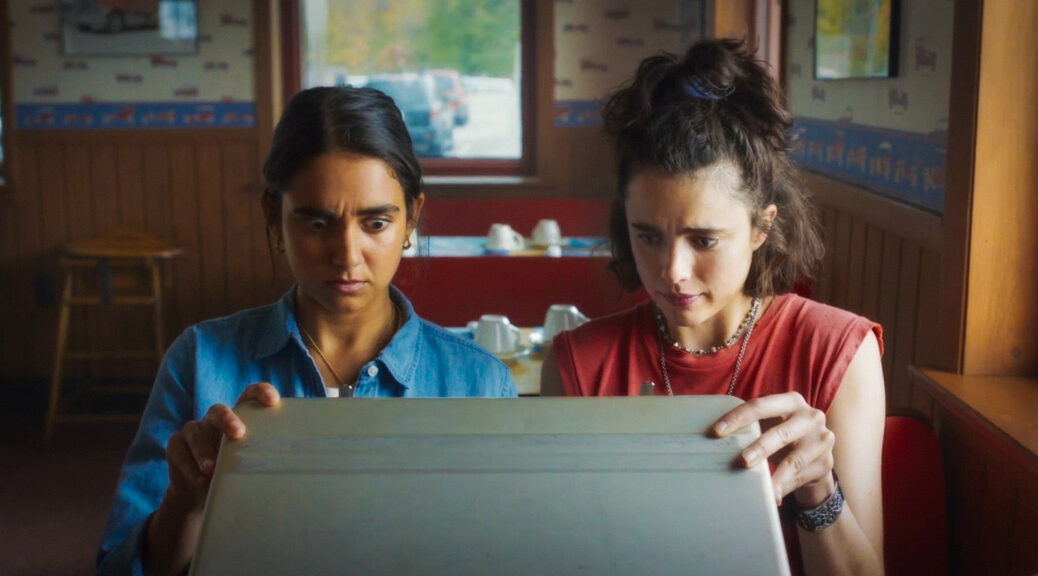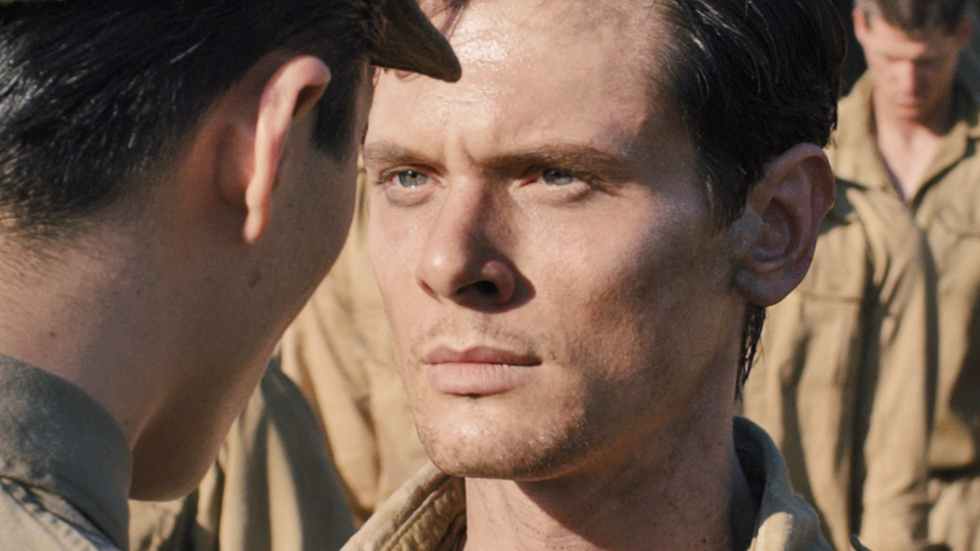Drive-Away Dolls
by Hope Madden and George Wolf
Is the flattery still sincerest if you’re imitating yourself?
Because about 15 minutes into Drive-Away Dolls, the first installment of a lesbian B-movie trilogy from director/co-writer Ethan Coen and co-writer Tricia Cooke (Coen’s longtime producer/editor/wife), you can’t ignore how much this film reminds you of Coen Brothers movies.
And yes, better Coen Brothers movies.
Like The Big Lebowski, Burn After Reading, Barton Fink and A Serious Man, all of which get subtle and not-so-subtle nods in a twisting story of two young women and a mysterious, valuable briefcase.
Jamie (Margaret Qualley) and Marian (Geraldine Viswanathan) are queer best friends in 1999 Philadelphia. Marian is sexually conservative, and the free-spirited Jamie hopes to get her friend some action while they accept a drive-away job down to Tallahassee and hit every lesbian bar they can find.
What the girls don’t know is that the car they’ve been given has two very important items in the trunk, and it isn’t long before “The Chief” (Colman Domingo) and his two hapless henchman (Joey Slotnick, C.J. Wilson) are on their tail heading South.
The cast is indeed impressive (with appearances from Pedro Pascal, Bill Camp, Beanie Feldstein and Matt Damon), but while the film serves up a handful of LOL moments, the vast majority of the nuttiness lands with more desperation than inspiration.
It all feels so forced, except for Viswanathan, whose earnest delivery points out the artifice in Qualley’s. The Foghorn Leghorn-y of pre-millennium lesbians, Jamie’s every line draws attention to its own zaniness. It calls to mind The Ladykillers—and that’s never the Coen movie you want to make people remember.
Much of the ensemble works magic, though. Camp is particularly, dryly memorable. But this script, and the unsteady direction, suffers from high expectations. Drive-Away Dolls is fine. It’s fun enough. It’s nutty. But if Coen and Cooke weren’t awkwardly chasing their own family history, it would have been more satisfying.



